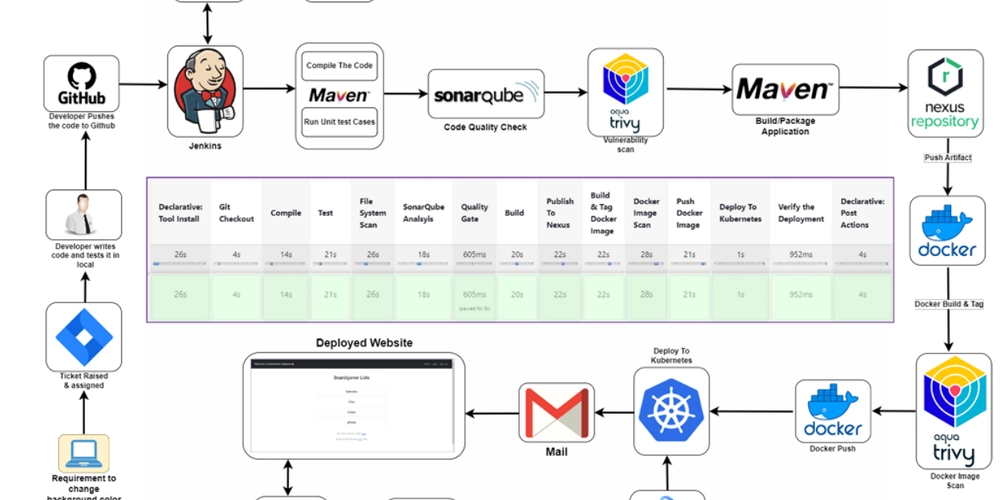Dev
1w
98

Image Credit: Dev
CI/CD DevOps Pipeline Project: Deployment of Java Application on Kubernetes
- This article focuses on deploying a Java application on Kubernetes using a CI/CD DevOps pipeline.
- The project highlights the importance of implementing DevOps practices for efficient software delivery.
- Key objectives include automating the CI/CD pipeline, integrating various DevOps tools, ensuring code quality and security, and enabling scalable deployments.
- The project utilizes tools like Jenkins, Maven, SonarQube, Trivy, Docker, Kubernetes, Prometheus, Grafana, and more for automation.
- AWS EC2 instances are provisioned to support the infrastructure, including nodes for Kubernetes, SonarQube, Nexus Repository, Jenkins, and monitoring.
- The article provides detailed steps for setting up a Kubernetes cluster with Kubeadm, installing CRI-O runtime, Kubernetes packages, and joining worker nodes.
- Instructions are given for installing Jenkins, Docker, and setting up Nexus Repository to streamline the CI/CD process.
- A guide on creating a private Git repository, generating a Personal Access Token, and pushing code securely is included.
- The setup of a Jenkins CI/CD pipeline for Java application deployment is explained with stages for build, security scanning, quality analysis, artifact publishing, Docker image handling, Kubernetes deployment, and notifications.
- A segment on monitoring setup covers Prometheus and Grafana installation, configuration, and integration for system health monitoring.
- The article concludes by emphasizing the project's impact on software delivery efficiency, reliability, and quality, with future prospects for continuous improvement and innovation in DevOps practices.
Read Full Article
5 Likes
For uninterrupted reading, download the app